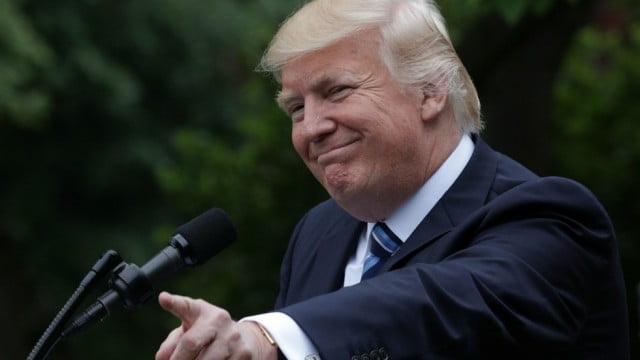
Tech groups are hopeful the Trump administration will do more to modernize the government’s technology systems on the heels of a new executive order on cybersecurity.
President Trump’s cyber order provides new steps for agencies to boost their security and counter digital threats, and was well received by industry groups.
Experts still caution that the cybersecurity changes won’t be effective unless the government gets rid of outdated computer systems, which are more vulnerable to security threats.
Tommy Ross a policy analyst at the Business Software Alliance (BSA) a D.C. trade group representing tech companies called “new resources” for updating the government’s IT “necessary.”
The order touches on modernizing technology, but observers said they wanted to see a more concrete plan.
The industry, though, is hopeful the president and lawmakers are poised for a breakthrough.
It’s a problem that already has the attention of Congress, where Rep. Will Hurd (R-Texas), has introduced the Modernizing Government Technology Act.
“A move towards modern technologies can keep our information and digital infrastructure secure from cyberattacks, while saving billions of taxpayer dollars,” Hurd said in a statement introducing a new version of his bill earlier this year.
The bill has bipartisan support and tech industry experts are also rallying behind it.
After Trump’s cyber order on Thursday, the Information Technology Industry Council (ITI), a Washington, D.C.-based trade group that represents companies Apple, Google and Microsoft, called on lawmakers to advance Hurd’s bill.
“Adequately strengthening cybersecurity will also depend on the federal government’s efforts to prioritize modernizing its aging and vulnerable information technology (IT) and pledged to continue to work with the administration and Congress on initiatives such as the bipartisan Modernizing Government Technology Act (MGT Act),” ITI wrote in a statement.
“The single biggest opportunity facing the new administration is modernization, which requires smart investments in security technologies that can help government agencies understand and reduce their cyber risk,” agreed Amit Yoran, chief executive of Tenable Security.
Supporters say they have a strong case for bringing the government’s technology into the 21st century. Efforts to improve cybersecurity won’t amount to much they say if the computers, servers, networks and other technology in operation are fundamentally insecure.
Patrick Morley, CEO of Carbon Black, a Massachusetts cybersecurity company, likened it to having an alarm system and security camera for a home, but failing to lock doors and windows.
“What IT and security needs is to work hand in hand,” Morley said. “If the two aren’t connected tightly it’s not going to work. You need to be doing both things in conjunction.”
[Source”cnbc”]




